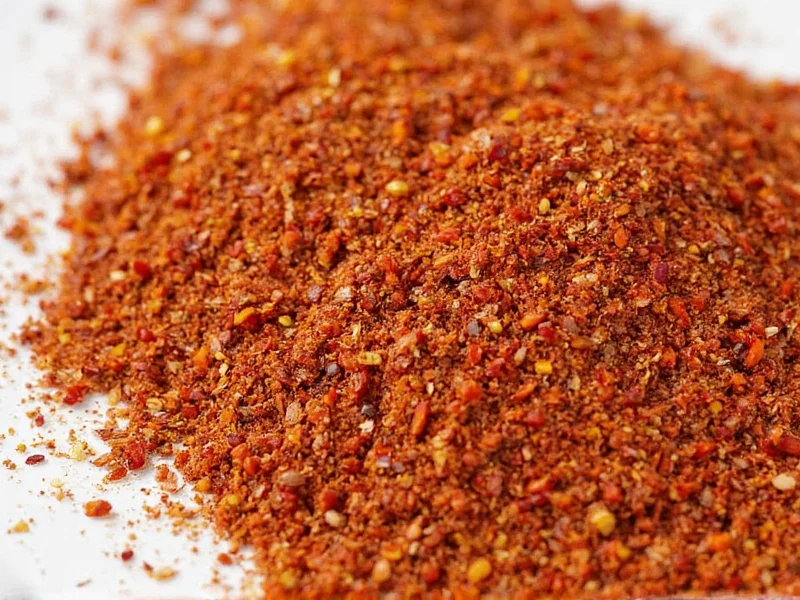Creating your own homemade chilli seasoning gives you complete control over ingredients, flavor intensity, and quality. Unlike commercial blends that often contain fillers, anti-caking agents, and excessive salt, a DIY approach lets you craft a pure, customizable spice mix tailored to your taste preferences and dietary needs. The fundamental components of authentic chilli seasoning work synergistically to create that distinctive Southwestern flavor profile.
Why Homemade Chilli Seasoning Outperforms Store-Bought
Commercial chilli seasoning blends frequently include unnecessary additives like maltodextrin, silicon dioxide, and excessive sodium. When you make your own easy homemade chilli seasoning recipe, you eliminate these fillers while ensuring maximum freshness. Spices begin losing potency immediately after grinding, so your homemade version will have significantly more vibrant flavor than pre-packaged options that may have sat in warehouses for months.
Core Ingredients Explained
Understanding each component's role helps you perfect your blend:
| Ingredient | Flavor Contribution | Key Benefit |
|---|---|---|
| Chili Powder | Base heat and earthiness | Provides foundational flavor (use ancho for mild, cayenne for hot) |
| Cumin | Earthy, warm depth | Essential for authentic Southwestern profile |
| Garlic Powder | Savory umami notes | Adds complexity without raw garlic's sharpness |
| Onion Powder | Sweet, aromatic base | Complements garlic while adding sweetness |
| Paprika | Color and mild sweetness | Enhances visual appeal and balances heat |
Perfect Basic Homemade Chilli Seasoning Recipe
This authentic homemade chilli seasoning ratio creates a balanced blend suitable for most applications. All measurements yield approximately 1/4 cup of finished seasoning:
- 2 tablespoons chili powder (ancho recommended)
- 1 tablespoon ground cumin
- 2 teaspoons garlic powder
- 2 teaspoons onion powder
- 1 teaspoon smoked paprika
- 1 teaspoon dried oregano
- 1/2 teaspoon black pepper
- 1/2 teaspoon cayenne pepper (adjust to taste)
- 1 teaspoon sea salt (optional - add when using)
Step-by-Step Preparation
Follow these simple steps for the best homemade chilli powder blend:
- Toast whole spices (if starting from whole): Lightly toast cumin seeds in a dry skillet over medium heat for 1-2 minutes until fragrant, then grind to powder
- Combine ingredients: In a small bowl, whisk together all powdered ingredients thoroughly
- Store properly: Transfer to an airtight container away from light and heat
- Rest before use: Allow flavors to meld for 24 hours before using for optimal taste
Customizing Your Blend
The beauty of a customizable chilli seasoning mix is adapting it to your preferences:
- Milder version: Reduce cayenne to 1/4 teaspoon and add 1 teaspoon sweet paprika
- Smoky variation: Increase smoked paprika to 2 teaspoons and add 1/4 teaspoon chipotle powder
- Tex-Mex style: Add 1/2 teaspoon coriander and 1/4 teaspoon red pepper flakes
- Heat-forward blend: Increase cayenne to 1 teaspoon and add 1/4 teaspoon crushed habanero powder
Storage Recommendations
Proper storage maintains your homemade chilli seasoning's potency:
- Use dark glass or opaque containers to protect from light
- Store in a cool, dry place away from stove or oven heat
- Label with date - most blends retain peak flavor for 3-6 months
- Never store above the stove where heat degrades spices rapidly
- For extended storage, keep in freezer for up to 1 year
Using Your Homemade Seasoning
This versatile blend works across numerous applications beyond traditional chilli:
- Meat rubs: Apply generously to steak, chicken, or pork before grilling
- Taco seasoning: Use 2-3 tablespoons per pound of meat for homemade taco seasoning
- Vegetable roasting: Toss with olive oil and vegetables before roasting
- Soup enhancement: Stir 1-2 teaspoons into tomato soup or bean dishes
- Marinades: Combine with oil, lime juice, and honey for flavorful marinades
Troubleshooting Common Issues
Address these frequent challenges with homemade blends:
- Too salty: Omit salt from the blend and add when cooking instead
- Flavor too flat: Add 1/4 teaspoon more cumin and let sit 24 hours to develop
- Not spicy enough: Mix in additional cayenne 1/8 teaspoon at a time
- Clumping: Ensure all ingredients are completely dry before mixing
- Losing potency: Store in smaller containers to minimize air exposure
Creating a Truly Authentic Blend
For those seeking an authentic homemade chilli seasoning experience, consider these advanced techniques:
Toast whole dried chilies (like ancho, guajillo, and pasilla) in a dry skillet until fragrant but not burnt. Remove stems and seeds, then soak in hot water for 20 minutes. Blend with toasted cumin seeds, garlic, and oregano to create a paste, then dehydrate and grind into powder. This labor-intensive method produces an exceptionally complex flavor profile that surpasses even premium commercial blends.
Nutritional Benefits of Homemade Seasoning
Unlike many store-bought options, your simple chilli seasoning ingredients provide natural health benefits without additives. Cumin aids digestion, garlic offers immune support, and chili peppers contain capsaicin which may boost metabolism. By controlling ingredients, you create a gluten-free chilli seasoning recipe that accommodates dietary restrictions while maximizing flavor and potential health benefits.











 浙公网安备
33010002000092号
浙公网安备
33010002000092号 浙B2-20120091-4
浙B2-20120091-4